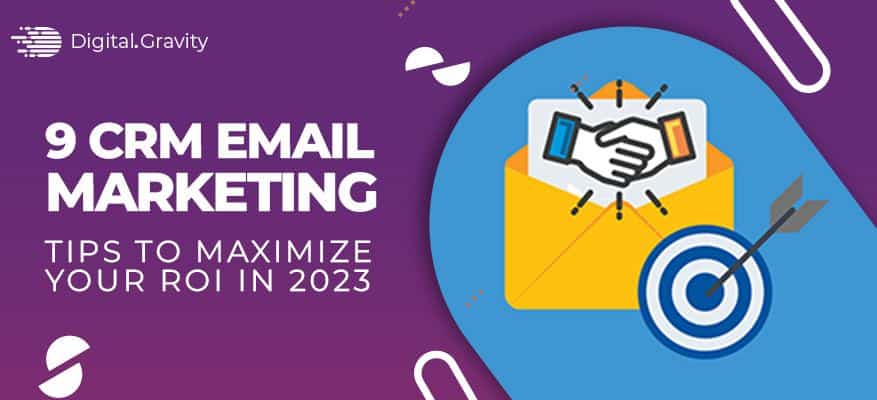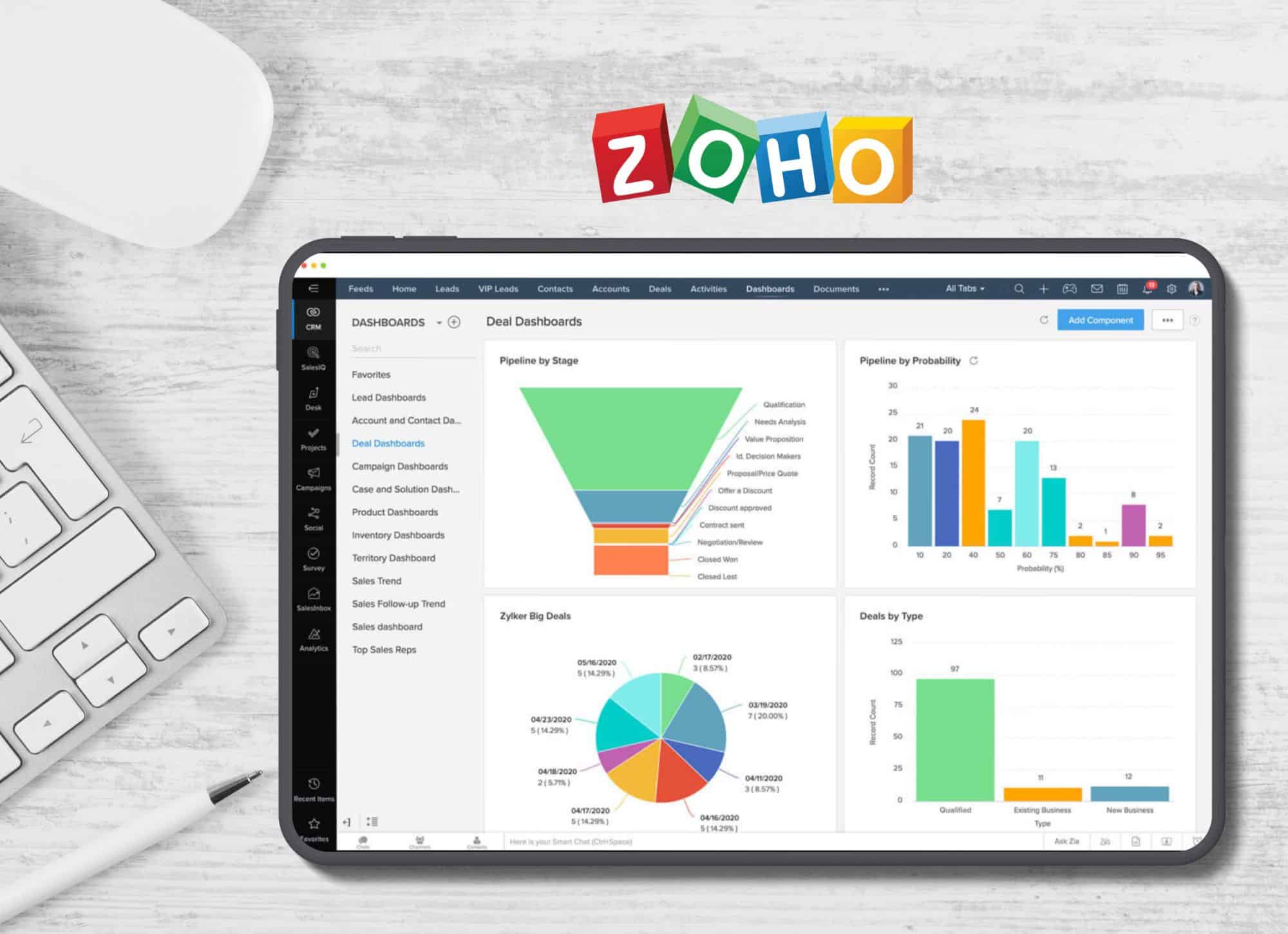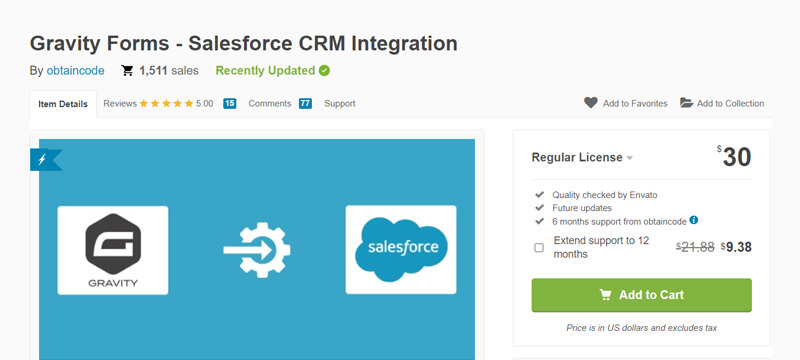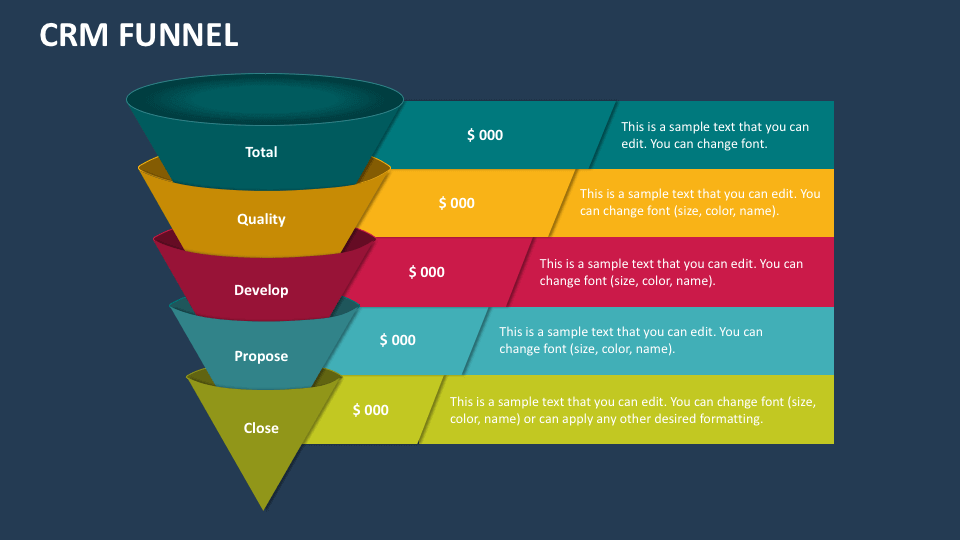
Introduction: The Power of CRM in the Marketing Landscape
In today’s hyper-competitive business environment, simply having a great product or service isn’t enough. You need a strategic approach to connect with your audience, nurture leads, and convert them into loyal customers. That’s where Customer Relationship Management (CRM) marketing comes in. It’s a powerful engine that, when implemented correctly, can dramatically improve your marketing ROI (Return on Investment). This article dives deep into the world of CRM marketing, providing actionable tips and insights to help you not only understand the concept but also implement it effectively to achieve exceptional results.
CRM isn’t just about storing customer data; it’s about understanding your customers’ behaviors, preferences, and needs. It’s about building meaningful relationships that foster loyalty and drive repeat business. By leveraging the power of CRM, you can personalize your marketing efforts, deliver relevant content, and create seamless customer experiences that keep your audience engaged and coming back for more. Think of it as the central nervous system of your marketing efforts, connecting all the dots and providing you with the information you need to make informed decisions.
The beauty of CRM marketing lies in its ability to provide a 360-degree view of your customers. You can track their interactions with your brand across various touchpoints, from website visits and email opens to social media engagement and purchase history. This holistic view allows you to tailor your marketing messages and offers to resonate with each individual customer, increasing the likelihood of conversion and, ultimately, boosting your ROI.
Understanding CRM Marketing and Its Core Components
Before we delve into the ROI tips, let’s clarify what CRM marketing actually entails. It’s a strategic approach that combines CRM technology with marketing strategies to manage and analyze customer interactions throughout the customer lifecycle. It encompasses a wide range of activities, including:
- Data Collection and Management: Gathering and organizing customer data from various sources, such as website forms, social media, and sales interactions.
- Segmentation: Dividing your customer base into distinct groups based on demographics, behavior, and preferences.
- Personalization: Tailoring marketing messages and offers to individual customers or specific segments.
- Automation: Automating repetitive marketing tasks, such as email campaigns and social media posting.
- Lead Nurturing: Engaging potential customers with relevant content and offers to guide them through the sales funnel.
- Reporting and Analytics: Tracking and analyzing marketing performance to identify areas for improvement.
The core components of CRM marketing work in synergy to optimize customer interactions. It’s not just about sending out generic emails; it’s about crafting personalized experiences that resonate with your audience and drive them towards conversion. By effectively utilizing these components, you can transform your marketing efforts from a scattershot approach into a laser-focused strategy that delivers tangible results.
Why CRM Marketing Matters: The ROI Advantage
The benefits of implementing a CRM marketing strategy are numerous, but the ultimate goal is to improve your ROI. Here are some key advantages:
- Increased Sales: By understanding your customers’ needs and preferences, you can tailor your marketing messages to increase conversion rates and drive sales.
- Improved Customer Retention: Personalized experiences and proactive customer service foster loyalty and reduce customer churn.
- Enhanced Customer Satisfaction: Addressing customer needs promptly and effectively leads to higher satisfaction levels.
- Reduced Marketing Costs: Automation and targeted marketing campaigns can help you optimize your marketing budget and reduce wasted spend.
- Better Decision-Making: Data-driven insights from your CRM system enable you to make informed decisions about your marketing strategies.
Consider this: according to a recent study, companies that implement CRM systems see an average increase of 29% in sales revenue. That’s a significant boost that can transform your bottom line. Moreover, CRM systems can lead to a decrease in marketing costs by up to 25%. These are compelling figures that underscore the importance of investing in CRM marketing.
The ROI of CRM marketing isn’t just about immediate financial gains; it’s also about building a sustainable business model that prioritizes customer relationships. It’s about creating a loyal customer base that will continue to support your business for years to come. And that, in the long run, is invaluable.
Essential CRM Marketing ROI Tips to Implement
Now, let’s get to the heart of the matter: the actionable tips that will help you maximize your CRM marketing ROI. These strategies are designed to be practical and implementable, regardless of the size of your business.
1. Choose the Right CRM System
The foundation of any successful CRM marketing strategy is the right CRM system. There’s a plethora of options available, each with its own set of features and capabilities. Selecting the one that aligns with your specific business needs is crucial. Consider the following factors:
- Scalability: Ensure the system can grow with your business.
- Integration: It should integrate seamlessly with your existing marketing tools.
- User-Friendliness: The system should be easy to use and navigate for your team.
- Reporting Capabilities: Robust reporting features are essential for tracking your ROI.
- Cost: Evaluate the pricing structure and ensure it fits your budget.
Don’t rush this decision. Take the time to research different CRM systems, compare their features, and read reviews from other users. Consider a free trial to get a feel for the system before committing. Investing in the right CRM system from the outset will save you time, money, and headaches in the long run.
2. Data Hygiene is King: Clean and Accurate Data
Garbage in, garbage out. This old adage holds true for CRM marketing. The quality of your data directly impacts the effectiveness of your campaigns. Ensure your CRM system contains clean, accurate, and up-to-date customer information. Implement the following practices:
- Data Validation: Use data validation tools to ensure the accuracy of data entered into your system.
- Regular Data Cleansing: Regularly review and update your data, removing duplicates and correcting errors.
- Data Enrichment: Supplement your existing data with additional information from third-party sources.
- Data Governance: Establish clear policies and procedures for data management.
Clean data allows you to segment your audience more effectively, personalize your marketing messages, and make more informed decisions. It’s the cornerstone of a successful CRM marketing strategy.
3. Segment, Segment, Segment: Targeted Marketing
One-size-fits-all marketing is a thing of the past. The beauty of CRM is that it allows you to segment your audience based on various criteria, such as demographics, behavior, purchase history, and engagement levels. Segmenting your audience enables you to deliver highly targeted messages that resonate with specific groups of customers. Here’s how to do it:
- Define Your Segments: Identify the key segments within your customer base.
- Use Data to Inform Segments: Leverage your CRM data to create meaningful segments.
- Personalize Your Messaging: Tailor your marketing messages to each segment.
- Test and Optimize: Track the performance of your campaigns and make adjustments as needed.
Targeted marketing leads to higher engagement rates, increased conversion rates, and a better ROI. By speaking directly to the needs and interests of your audience segments, you can create a more compelling and effective marketing experience.
4. Personalization: Tailor the Experience
Personalization is the key to building strong customer relationships. By using your CRM data to personalize your marketing efforts, you can create a more engaging and relevant experience for your customers. Here are some personalization tactics:
- Personalized Emails: Use customer names, purchase history, and other data to personalize your email campaigns.
- Website Personalization: Tailor your website content and offers to individual customers.
- Product Recommendations: Suggest products based on customer purchase history and browsing behavior.
- Dynamic Content: Display different content to different customers based on their segments.
Personalization shows your customers that you understand their needs and value their business. It’s a powerful way to increase engagement, drive conversions, and boost your ROI.
5. Automate, Automate, Automate: Efficiency is Key
Automation is your secret weapon for maximizing efficiency and freeing up your time to focus on strategic initiatives. CRM systems offer a wide range of automation capabilities. Here are some examples:
- Email Marketing Automation: Automate email campaigns, such as welcome emails, abandoned cart emails, and promotional offers.
- Lead Nurturing Automation: Guide leads through the sales funnel with automated email sequences and content.
- Social Media Automation: Schedule social media posts and automate engagement activities.
- Task Automation: Automate repetitive tasks, such as data entry and follow-up calls.
Automation saves you time, reduces errors, and ensures consistency in your marketing efforts. It allows you to scale your marketing activities without adding headcount. And the best part? It frees up your team to focus on more strategic and creative tasks.
6. Measure and Analyze: Data-Driven Optimization
You can’t improve what you don’t measure. Regularly track and analyze the performance of your CRM marketing campaigns to identify areas for improvement. Here are some key metrics to monitor:
- Conversion Rates: Track the percentage of leads that convert into customers.
- Customer Acquisition Cost (CAC): Calculate the cost of acquiring a new customer.
- Customer Lifetime Value (CLTV): Estimate the total revenue generated by a customer over their relationship with your business.
- Email Open and Click-Through Rates: Monitor the performance of your email campaigns.
- Website Traffic and Engagement: Track website visits, bounce rates, and time on page.
Use these metrics to identify what’s working and what’s not. Make data-driven decisions to optimize your campaigns and improve your ROI. Don’t be afraid to A/B test different strategies and approaches to see what resonates best with your audience.
7. Integration is Crucial: Connect the Dots
Your CRM system should integrate with your other marketing tools, such as your email marketing platform, social media management tools, and website analytics platform. Integration allows you to share data seamlessly between different systems, providing a more holistic view of your customers and enabling you to create more effective marketing campaigns. Here are some integration examples:
- Email Marketing Integration: Sync your CRM data with your email marketing platform to personalize email campaigns.
- Social Media Integration: Connect your CRM system with your social media accounts to track customer interactions and engagement.
- Website Analytics Integration: Integrate your CRM data with your website analytics platform to track customer behavior on your website.
Integration streamlines your workflow, reduces manual data entry, and provides a more unified view of your customer data. It’s a critical step towards maximizing your CRM marketing ROI.
8. Focus on Customer Experience: Build Relationships
CRM marketing is about more than just transactions; it’s about building lasting relationships with your customers. Focus on providing a positive customer experience at every touchpoint. Here’s how:
- Personalized Interactions: Tailor your interactions to each customer’s needs and preferences.
- Proactive Customer Service: Anticipate customer needs and provide proactive support.
- Feedback Collection: Regularly solicit customer feedback to understand their needs and preferences.
- Loyalty Programs: Reward loyal customers with exclusive offers and perks.
Happy customers are more likely to become repeat customers and refer your business to others. Focusing on customer experience is a long-term strategy that will pay dividends in terms of customer loyalty, positive word-of-mouth referrals, and ultimately, increased ROI.
9. Training and Adoption: Empower Your Team
Your CRM system is only as good as the team using it. Provide comprehensive training to your team on how to use the system effectively. Ensure they understand the importance of data accuracy, segmentation, and personalization. Encourage adoption by highlighting the benefits of using the CRM system and providing ongoing support. Here’s how to improve adoption:
- Training Sessions: Provide regular training sessions to educate your team on the CRM system.
- User Guides and Documentation: Create user guides and documentation to help your team use the system effectively.
- Ongoing Support: Provide ongoing support to answer questions and address any issues.
- Lead by Example: Encourage managers to actively use the CRM system and demonstrate its value.
A well-trained and engaged team will be more likely to embrace the CRM system and utilize its features to their full potential. This, in turn, will lead to better data quality, more effective marketing campaigns, and a higher ROI.
10. Embrace Mobile CRM: Stay Connected
In today’s mobile-first world, it’s essential to have a mobile CRM solution. A mobile CRM allows your team to access customer data and manage their tasks on the go. This is especially important for sales teams who are constantly on the move. Here’s why a mobile CRM is valuable:
- Real-Time Access: Access customer data and manage tasks from anywhere, at any time.
- Improved Productivity: Increase productivity by allowing your team to work more efficiently.
- Enhanced Collaboration: Facilitate collaboration between team members.
- Better Customer Service: Provide faster and more responsive customer service.
A mobile CRM empowers your team to stay connected with customers and manage their activities effectively, regardless of their location. This can lead to faster response times, improved customer satisfaction, and increased sales.
Putting It All Together: A CRM Marketing Action Plan
Implementing a successful CRM marketing strategy requires a well-defined action plan. Here’s a step-by-step guide to get you started:
- Define Your Goals: Clearly define your CRM marketing goals, such as increasing sales, improving customer retention, or reducing marketing costs.
- Choose the Right CRM System: Select a CRM system that meets your specific business needs.
- Clean and Organize Your Data: Ensure your CRM system contains clean, accurate, and up-to-date customer data.
- Segment Your Audience: Divide your customer base into distinct segments based on relevant criteria.
- Develop Personalized Campaigns: Create personalized marketing messages and offers for each segment.
- Automate Your Marketing Tasks: Automate repetitive tasks, such as email campaigns and social media posting.
- Track and Analyze Your Results: Regularly track and analyze the performance of your campaigns.
- Optimize Your Campaigns: Make data-driven decisions to optimize your campaigns and improve your ROI.
- Provide Training and Support: Provide comprehensive training to your team and ongoing support.
- Continuously Improve: CRM marketing is an ongoing process. Continuously refine your strategies and tactics based on your results.
By following this action plan, you can lay the foundation for a successful CRM marketing strategy that will drive growth and improve your ROI.
Conclusion: The Future of Marketing is Customer-Centric
CRM marketing is no longer a luxury; it’s a necessity for businesses that want to thrive in today’s competitive landscape. By focusing on building strong customer relationships, personalizing your marketing efforts, and leveraging the power of data, you can unlock explosive growth and achieve a significant ROI. The tips outlined in this article provide a comprehensive guide to help you navigate the world of CRM marketing and achieve exceptional results.
The future of marketing is customer-centric. Those businesses that embrace this approach and prioritize building meaningful relationships with their customers will be the ones that succeed. Start implementing these CRM marketing tips today, and watch your business flourish.




